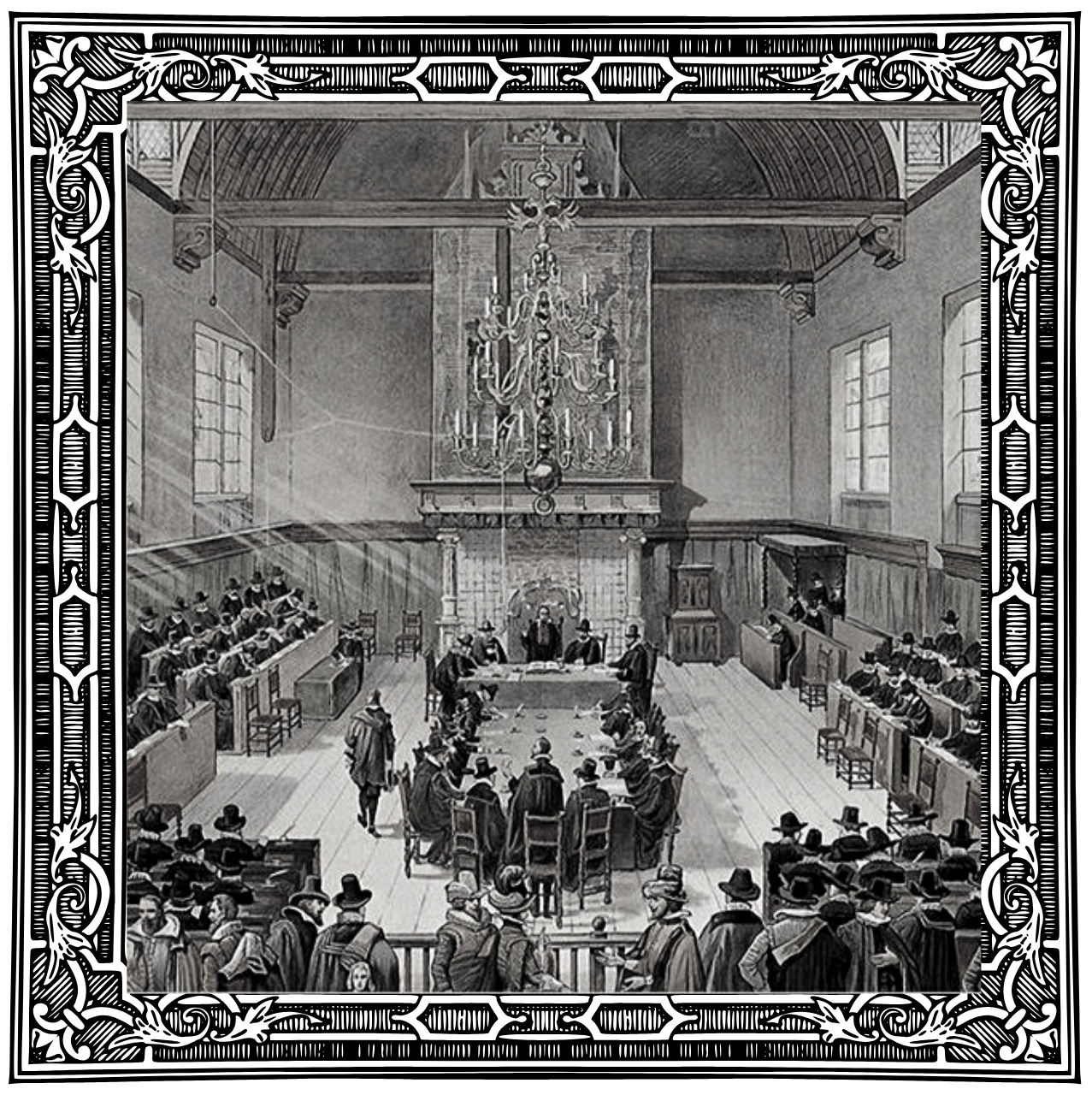Manna. What is it? That’s the meaning of the Hebrew word. It was unfamiliar to those in the story of Exodus 16 though for us, it’s certainly known among the stories of the Old Testament. What’s so exciting for us as Christians is its fulfillment in Jesus! (John 6) What is what is it all about? Chiefly it’s a story of the Lord’s testing of his children. Here’s where we learn that God’s glory isn’t only revealed in what he gives, but also in what he withholds. He tests the love of his children. His desire is to see them love him no matter if he gives or takes. God’s glory in the manna is seen through this theme of testing.
The Glory of His Privation
God’s glory in the manna is seen in his privation. This means he withheld food from the Israelites so they’d become extremely hungry (Ex. 16:3). Of course our response is, “Why would a good God withhold basic food from his own dear children?” To humble them.
Israel’s Sin
Because of their testiness towards him, he tested them. Their sin necessitated his sifting them; their pride needed to be purified. Not only does verse 2 say they grumbled “against Moses and Aaron” but verse 3 records their words: “for you have brought us out into this wilderness.” What happened to the Lord?
 You see this was becoming a sinful pattern for them. Back in chapters 14 and 15 we read of the Lord’s mighty salvation and their song of praise. Then just three days later, they complained there was no water to drink (15:22–27). After providing for them, here in chapter 16 it’s only forty-five days after the Exodus from Egypt. Yet Israel’s already grumbling. “For you have brought us not into this wilderness.” How quick we are to forget God’s goodness and grace to us when life seems to turn against us. Two specific sins that are pointed out, all leading us to see God’s glory in the manna.
You see this was becoming a sinful pattern for them. Back in chapters 14 and 15 we read of the Lord’s mighty salvation and their song of praise. Then just three days later, they complained there was no water to drink (15:22–27). After providing for them, here in chapter 16 it’s only forty-five days after the Exodus from Egypt. Yet Israel’s already grumbling. “For you have brought us not into this wilderness.” How quick we are to forget God’s goodness and grace to us when life seems to turn against us. Two specific sins that are pointed out, all leading us to see God’s glory in the manna.
First, their sin wasn’t against Moses and Aaron. It was against the Lord (16:8). Complaining about being led into the wilderness and having no food was a complaint against the Lord’s providence. To complain about God’s providence is sin. The Westminster Larger Catechism says one of the sins against the first commandment is being “discontent and impatience at his dispensations” (Q&A 105).
Second and closer to home for us, they did complain against the leaders God gave—their pastors, Moses and Aaron. It should strike us that when the Israelites grumbled against the Lord they directed it at Moses and Aaron. How quick we are to blame our leaders in church! “I can’t complain against God so a pastor will have to do!” For the Israelites, this meant blaming Moses and Aaron for taking them into the wilderness and for not providing food. For us it’s blaming the pastor for anything we’re discontent with:
- we sing too many Psalms/too many hymns
- we have communion too much/we don’t have it enough
- the preaching has too much application/it doesn’t have enough application
- the preaching is too theological/it’s not theological enough
- the people in your church are too friendly/they’re not friendly enough
- when I had a problem you didn’t come quickly enough/you pried into my business.
Illegitimate complaints against your leaders in church are against God himself. We’re to “obey [our] leaders and submit to them” because “they are keeping watch over your souls, as those who will have to give an account [to God].” The writer to the Hebrews, then, echoed wilderness language: “Let them do this with joy and not with groaning, for that would be of no advantage to you” (Heb. 13:17).
The Lord’s Testing
Israel’s testiness was the occasion of the Lord’s testing. Why? To demonstrate God’s glory in the manna. He’s in control of life and gives himself glory in things his hand gives and takes. By taking from them, they’d be led to seek the Giver. What we learn is not only in our catechisms, but what you and I know from in life. God’s providence is over all. He’s in control of everything out there, and here in my life. Sometimes he leads you in a way you don’t understand; he does this to test your faith and love. Do you so trust your Father even when evil comes upon you? Are you confidence his goodness will turn it around to your good? Here’s how the Heidelberg Catechism says it:
That the eternal Father of our Lord Jesus Christ, who out of nothing created heaven and earth and everything in them, who still upholds and rules them by his eternal counsel and providence, is my God and Father for the sake of Christ his Son. I trust God so much that I do not doubt he will provide whatever I need for body and soul, and will turn to my good whatever adversity he sends upon me in this vale of tears. He is able to do this because he is almighty God; he desires to do this because he is a faithful Father (Q&A 26).
The Lord’s purpose in privation was to bring Israel to the place of desperation and neediness: “that I may test them” (16:4). What’s the test all about? “Whether they will walk in my law or not” (16:4). Moses explained this at the end of the forty years of wandering:
And you shall remember the whole way that the Lord your God has led you these forty years in the wilderness, that he might humble you, testing you to know what was in your heart, whether you would keep his commandments or not. 3And he humbled you and let you hunger and fed you with manna, which you did not know, nor did your fathers know, that he might make you know that man does not live by bread alone, but man lives by every word that comes from the mouth of the Lord (Deut. 8:2–3).
The Lord tests his people whether they’ll trust what he says or what they see. He humbles them to see whether they’ll hunger for him. Whether you’re in a famine like Jacob and his sons, become destitute like Job, are persecuted like the apostles, or have to stand like Polycarp in the midst of your family and friends: will you trust? Trials are like fire that purifies the gold and silver of our faith (1 Peter 1) and produces patience in us (Jas. 1). Will we trust the Lord’s Word that when we pass through we’ll be unharmed? In fact, we’ll be more refined than before! Or will we trust what our senses perceive: we’ll be burnt and possibly die?
Why would God test his children? We might think because he’s being vindictive. Israel tests and the Lord gets payback, right? But “as a man disciplines his son, the Lord your God disciplines you” (Deut. 8:5). It’s not his enemies he disciplines, but his friends. It’s not a sign of his hatred, but love. Testing is wrapped up in lavish grace. In the evening the Lord gave meat. Then in the morning the Lord gave bread. The great purpose is grace: “At evening you shall know that it was the Lord who brought you out of the land of Egypt” (16:6); “Then you shall know that I am the Lord your God” (16:12). To know is to perceive with your head and to receive with your heart. The Lord desired this for his children.
Do you trust him today? Will you trust him for tomorrow?
The Glory of His Provision

The Lord’s privation prepared them for his provision. God’s glory in the manna is in his lavishness! He gave them manna every day (16:4) and then twice as much on the day before the Sabbath (16:5). God’s hand of discipline always prepares us for his arms of love. His taking away always leads us back to him and his provision of an ever-ready, ever-loving, and ever-merciful God. Does that mean if I’m poor I’ll be rich? If I’m sad I’ll be happy? Will my singleness result in marriage? No. The Lord gives and takes; blessed be his name. The glory of his provision is that even if God doesn’t bless us in these ways, we’ll be with him sooner! As Job said, “though he slay me yet I will live.” “In the morning you shall see the glory of God.”
We also see his provision in where this text ends up. Note how the Lord commanded an omer of manna to be kept in a jar “throughout your generations so that they may see the bread with which I fed you in the wilderness” (16:32). That jar of bread would later be put into the Ark of the Covenant. It was a testimony to what he’d do in continually providing for his people in the wilderness. It was a shadow; “and the rock was Christ” (1 Cor. 10:4). The reality is Jesus:
Do not labor for the food that perishes, but for the food that endures to eternal life . . . So they said to him, “Then what sign do you do, that we may see and believe you? What work do you perform? Our fathers ate the manna in the wilderness; as it is written, ‘He gave them bread from heaven to eat.’” Jesus then said to them, “Truly, truly, I say to you, it was not Moses who gave you the bread from heaven, but my Father gives you the true bread from heaven. For the bread of God is he who comes down from heaven and gives life to the world.” They said to him, “Sir, give us this bread always.” Jesus said to them, “I am the bread of life; whoever comes to me shall not hunger, and whoever believes in me shall never thirst. (John 6:27, 30–34)
After some grumbled about this (John 6:41), Jesus said:
I am the bread of life. Your fathers ate the manna in the wilderness, and they died. This is the bread that comes down from heaven, so that one may eat of it and not die. I am the living bread that came down from heaven. If anyone eats of this bread, he will live forever. And the bread that I will give for the life of the world is my flesh. (John 6:48–51)
The glory of God in the manna is that he withheld bread from Israel to prepare for giving bread to the entire world. This bread doesn’t spoil; it lasts forever in his gracious presence.
Conclusion
We learn from the Lord’s testing of Israel that his glory is revealed in what he takes and in what he gives because. He’s the Lord and author of all life. This is God’s glory in the manna.
This glorious Lord came to us in Jesus. Just as in the wilderness testing so with Jesus there are two kinds of responses. There’s either unbelief or belief. In John 6 some grumbled (vv. 41, 66). In fact, most left, leaving Jesus with just twelve disciples. In the same way, some believed in the Lord in the wilderness and later with Jesus. What’s it going to be for you? Notice how belief in the glory of the Lord is evidenced.
First, we evidence our belief by craving for Jesus as the heavenly bread of our souls (John 6:34). “Sir, give us this bread always.”
Second, we evidence our belief by contentment with what God has provided us in Jesus (John 6:68). “Lord, to whom shall we go? You have the words of eternal life.”
If you simultaneously crave Jesus and are content with him, you have—and ever will—experience the glory of God in the manna.
For previous articles in this series:







